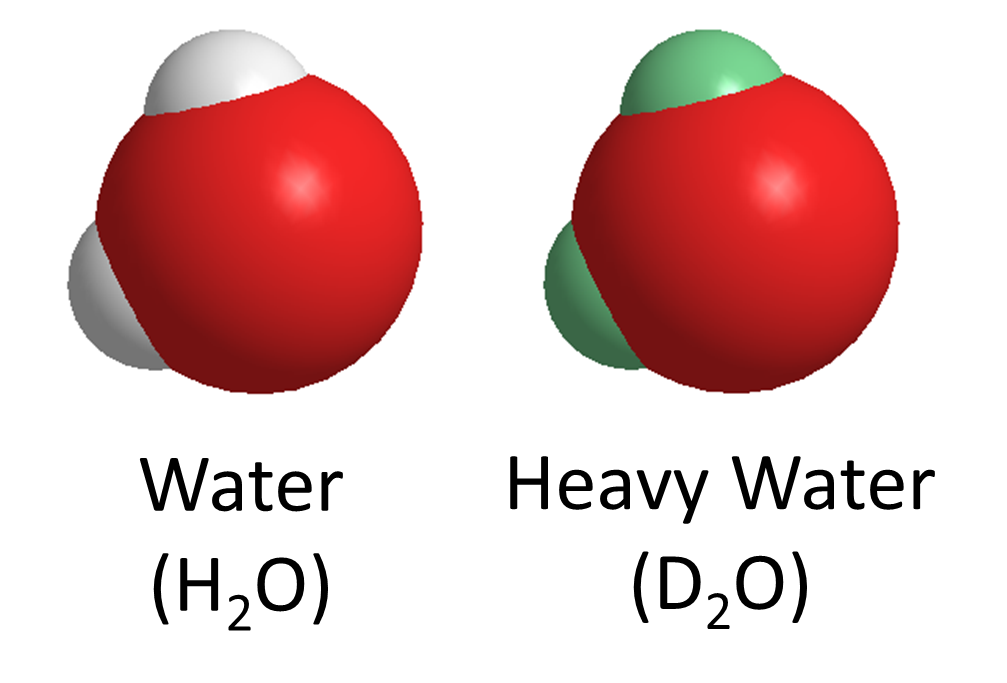Heavy Water
Heavy water is chemically called deuterium oxide. Heavy water was discovered by Urey in 1932 and showed that water contains a small amount of by prolonged electrolysis of water and fractional distillation we can prepare heavy water. In electrolysis is liberated much faster than and thus remaining water becomes enriched with heavy water, . If we continue this process until only a small volume remains, we get pure It has been estimated by experiments that about 29,000 L of water must be electrolyzed to get about 1 L Of , which is 99

Physical properties of heavy water:
- Just like water is colorless, tasteless and odorless liquid.
- The Molecular mass of heavy water is more than ordinary water and that’s why physical constants of heavy water are slightly higher than ordinary water.
- The dielectric constant of heavy water is slightly lower than normal water, this is the reason why ionic compounds are less soluble in than in .
- Maximum Density of at 298 K is 1.1059 g/, in comparison with water which is 1.00 g/.
- Boiling Point of is 374.4 K and melting Point is 276.8 K, which is slightly higher than ordinary water.
Chemical Properties of heavy water:
Heavy water only slightly differs from ordinary water in its chemical behavior. However, the reactions of heavy water are quite slower than ordinary water. Let’s discuss some chemical properties of heavy water:
- Action with metals: reacts with metals slowly liberating deuterium ). See the reaction:
- Action with metallic oxide: reacts with metal oxides forming heavy alkalies as shown here:
- Action with non-metallic oxides: reacts with non-metallic oxides which readily dissolve in heavy water forming their respective deuteron-acids.
- Action with carbides, nitrides, phosphides, arsenides, etc: reacts with these compounds same as water . here are some reactions:
- Electrolysis: Heavy water decomposes into deuterium and oxygen on electrolysis. Deuterium mainly liberated at cathode and oxygen at the anode.
- Exchange reactions: The Componds containing hydrogen are treated with hydrogen undergoes exchange for deuterium.
- Formation of deuterates: just like ordinary water, heavy water also combines with many compounds as heavy water of crystallization. These hydrates of heavy water are called deuterates. For example, O, , etc.
- Biological Properties of heavy water: Heavy water is harmful to humans, animals, plants because it slows down the rates of reactions occurring in them. Hence, heavy water does not support life as well as ordinary water does.
Uses of Heavy Water:
- As a tracer compound: It has been used as a tracer compound to study the mechanism of various chemical reactions.
- As a moderator: Heavy water is used in a nuclear reactor as a moderator because it slows down the fast-moving neutrons and hence, helps in controlling the process of nuclear fission.
- In nuclear magnetic resonance: It is used as one of the references in nuclear magnetic resonance spectroscopy.
- In preparation for deuterium: Heavy hydrogen or as we call it deuterium is obtained by electrolysis of heavy water or by its decomposition by sodium metal.